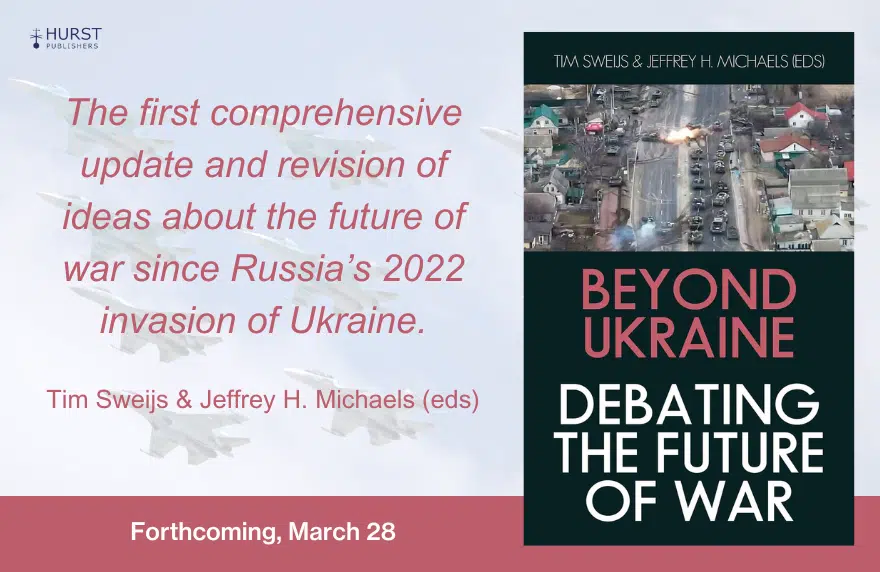On November 20, the Netherlands Defence College (Instituut Defensie Leergangen – IDL) of the Netherlands Defence Academy (NLDA) in close coordination with the Hague Centre for Strategic Studies (HCSS) organised the symposium “The Future of War” for Dutch and Belgian students of the joint NLD/BEL Advanced Staff Course.
Moderated by Dr Tim Sweijs, Director of Research at HCSS and Senior Research Fellow at the Netherlands’ War Studies Research Centre of the Netherlands Defence Academy, the symposium brough together a lineup of distinguished experts providing thought-provoking presentations and panel discussions on (the characteristics and rules of) war and warfare of the belligerent parties in wars and conflicts around the world.
The cohort of international military and civilian students participating in the symposium were welcomed by Major General Roy Sillen, Commander of the NLDA, who stressed the importance of the role of our future leaders in the volatile, uncertain, complex and ambiguous future.
Future military leadership will require a combination of traditional leadership skills with new competencies suited to a more technologically advanced, information-dense, and rapidly evolving battlefield environment.
Speakers included LtCol Alexander Willemen (Senior lecturer IDL), Prof. Beatrice Heuser (Chair of International Relations at University of Glasgow), Dr. David Ucko (Head of Net Assessment, NATO HQ), Prof. Roy Lindelauf (Professor of Data Science in Military Operations at the NLDA), Peter Viggo Jakobsen (Associate Professor, Royal Danish Defence College), and Mark Riisik (Deputy Director, Policy Planning Department, Estonian Ministry of Defence), amongst others.
The future of warfare is poised to be a complex, multi-faceted landscape shaped by rapid technological advancements and evolving global dynamics, the experts noted, anticipating a shift towards protracted conflicts characterised by hybrid warfare tactics, blending conventional, irregular, and cyber operations across interconnected domains of land, air, sea, space, and cyberspace.
Autonomous systems and AI will play increasingly prominent roles, while the proliferation of long-range precision strike capabilities and hypersonic weapons will reshape battlefield dynamics. The growing importance of information and cognitive warfare, coupled with the blurring lines between physical and digital realms, will present new challenges in controlling strategic outcomes and maintaining deterrence. Climate change, persistent digitalisation, and demographic shifts will further influence operational environments and security considerations.
As traditional military advantages diminish and the risk of escalation increases due to new technologies, future conflicts are likely to be more unpredictable and potentially more devastating, underscoring the need for adaptive strategies and international cooperation to mitigate these emerging threats.
The symposium was a follow-up from earlier courses on ‘The Future of War”, but this time specifically designed for the NLD/BEL Advanced Staff Course.








